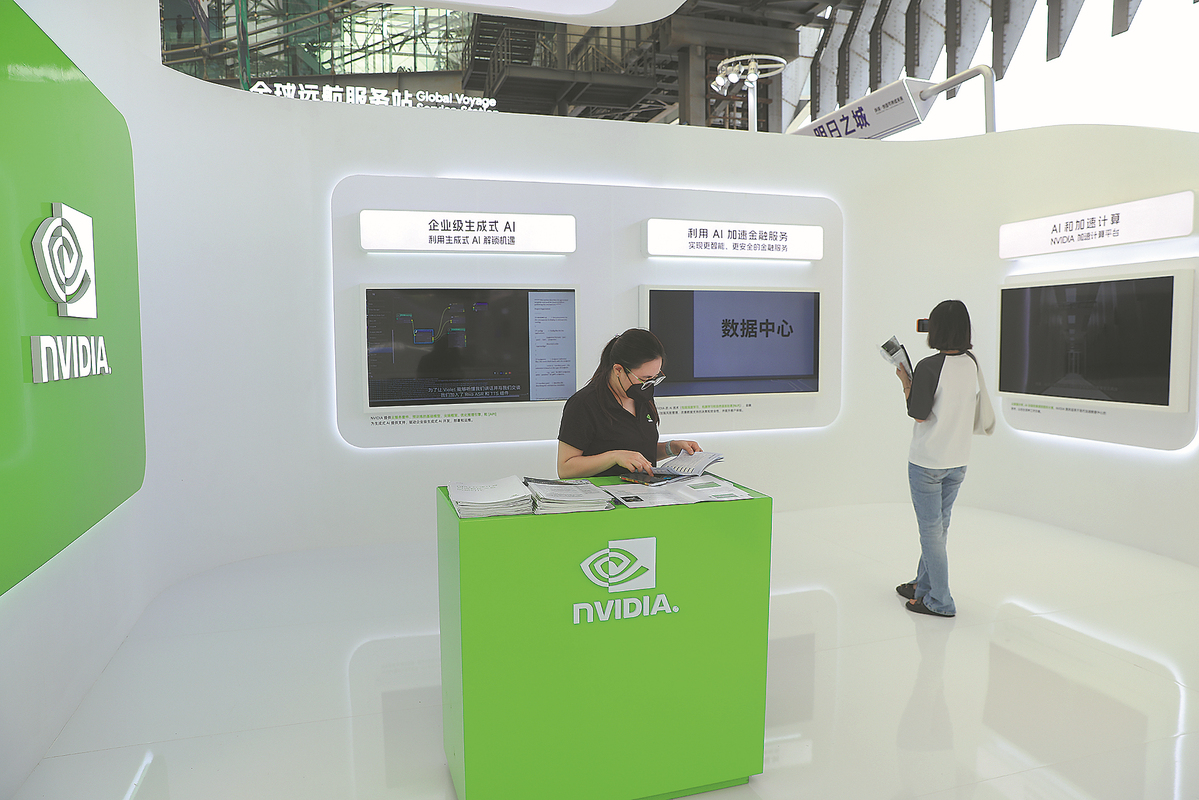Market mavens downplay volatility
By SHI JING in Shanghai | CHINA DAILY | Updated: 2024-04-23 08:16

External market volatility may have necessitated some adjustments in China's A-share market of late, but the capital market's inherent resilience and potential for a long-term bull run remain intact as regulators have been stepping up efforts to facilitate its high-quality development, experts said on Monday after taking stock of last week's tech meltdown in the US stock market.
In the United States, the so-called Magnificent Seven, comprising technology giants such as Microsoft, Meta and Nvidia, shed over $930 billion in their market value over the past trading week. It is the biggest weekly drop since November 2022.
Given the global nature of the institutional investors that drive the world's stock markets, the benchmark Shanghai Composite Index fell by 0.67 percent on Monday, while the Shenzhen Component Index slid 0.43 percent.
External uncertainties have been increasing, said Qiu Xiang, joint chief strategist at CITIC Securities. Market expectations for the US Federal Reserve cutting interest rates have dropped quickly. The volatility of risky asset prices and non-US dollar currencies have thus intensified.
Elevated geopolitical tensions in the Middle East have driven up commodity prices, exacerbating concerns over global inflation. Overseas investors' outlook on liquidity is thus impaired and the global financial market has become more bumpy, he said.
While agreeing that stock markets worldwide have switched to a "risk-off" mode due to rising market volatility, market insiders suggested Chinese investors adopt a more defensive strategy.
Experts at China Securities are still confident that a long-term bull run will unfold gradually in China, thanks to the "increasing positive factors in the Chinese market".
Earlier this month, the State Council announced measures supportive of the market. These were followed by more measures introduced by the China Securities Regulatory Commission, the country's top securities watchdog. Together, they will help build up the resilience of the A-share market, said China Securities analysts.
The sets of new measures that the CSRC announced late on Friday aim at stepping up support for technology companies, further lowering trading costs and enhancing connectivity with overseas markets. They will attract more medium- to long-term capital to the A-share market, said Wang Yi, chief strategist of Huatai Securities.
According to the 19 detailed rules released by the CSRC to further regulate mutual fund trading fees, the commission rate of asset managers' products passively tracking stock performance should not be higher than the market's average stock trading commission rate. The market average will be regularly released by the Securities Association of China.
A mutual fund company's annual trading commission via a stock brokerage will be no more than 15 percent of the former's whole-year securities trading commission, a rate set at 30 percent at present.
The new rules, effective from July 1, will push mutual fund companies to come up with more product innovations, said Yang Delong, chief economist of First Seafront Fund.
As commission is lowered, mutual fund companies will attach more importance to investment management, potentially delivering more profits to investors via innovative products. Only when mutual fund investors are more comfortable with such investments will more capital enter the market, which will help usher in a long-term bull run, he said.
Overseas investors seem content with the latest measures. They bought A shares worth over 1 billion yuan ($138 million) on Monday via the stock connect program linking the Shanghai, Shenzhen and Hong Kong bourses.
On Friday, the CSRC introduced 16 measures to facilitate the high-quality development of technology companies in terms of IPOs, restructuring, bond issuances and private equity investments.
Tian Lihui, director of the Institute of Finance and Development at Nankai University, said that the new measures will provide all-round support for technology companies. This in turn will help advance China's technology innovation and industrial upgrade. More capital will be directed to companies with higher innovation potential, which in turn will raise the investment value of the capital market, attracting more investors, he said.
























